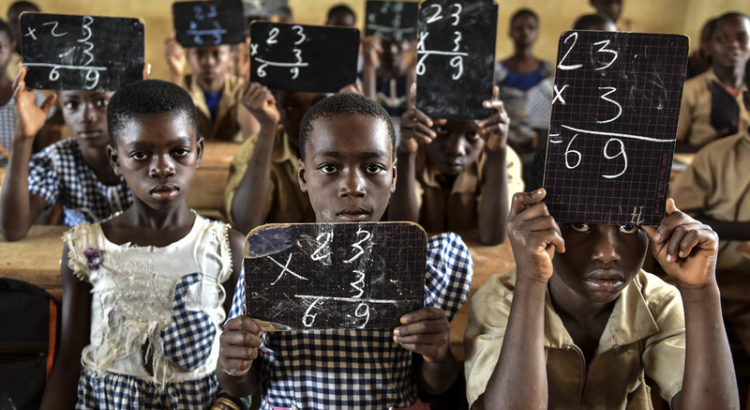Por: Aliko Dangote.
It is time for an entrepreneurial and knowledge revolution in Africa. Only a properly educated workforce and entrepreneurial class will have the skills and drive to thrive as new technologies change the nature of work, leisure, the environment and society — and tackle our continent’s most pressing problems.
Many people in Africa and beyond share this view. When French President Emmanuel Macron visited Nigeria in July, he offered a bold prediction: if Africa’s youngest entrepreneurs worked hard and innovated, he said, they would change their countries and transform the world.
Similarly, when Facebook’s Mark Zuckerberg visited a co-creation hub in Lagos in 2016, he was impressed by the “energy” of the country’s youthful innovators — the social entrepreneurs, tech companies and investors who are collaborating to solve some of Nigeria’s toughest problems.
But that energy can go only so far without education.
Indeed, although Macron and Zuckerberg are right to be inspired by Africa’s youth, the entrepreneurial and knowledge revolution that is needed to ensure a prosperous future for the continent can happen only if there is also an education revolution. Simply put, we need to get all of Africa’s children in school, so that the next generation of entrepreneurs has the skills it needs to succeed.
Africa faces huge challenges in reforming its education sector. Although access to education has expanded dramatically over the past 25 years, and more boys and girls are in classrooms than ever before, many young people are still not learning what they need to in order to thrive now and in the future.
If current trends continue, by 2050 about a third of Africa’s one billion youths will lack basic proficiency in maths, reading and other skills and subjects. Millions will be unemployable and unproductive.
Today’s educational shortcomings weaken Africa’s development capacity. According to the World Economic Forum, Africa needs another one million university-trained researchers to tackle its most pressing health, energy and development problems.
But educating those scientists and potential entrepreneurs is an uphill battle. Technology has transformed the modern workplace, but curricula, modes of learning and instruction and teacher quality continue to lag. Even good schools exhibit a gap between the skills students need — such as critical thinking and problem solving — and what they are being taught. Unless such shortcomings are addressed, Africa’s future workforce will be unable to lead the type of change many are expecting.
To be sure, Africa is not facing this challenge alone. According to a 2016 report by the International Commission on Financing Global Education Opportunity (the education commission), where I serve as a commissioner, by 2030, more than 800-million children — half the world’s school-age population — will graduate or drop out of school without the skills required to secure a decent job. This is a global learning crisis and it demands a global solution.
One of the biggest obstacles to improving education quality is financing. Today, only 10% of official development assistance funds education programmes in poor countries. Clearly, that share needs to increase. But even an increase in international funding levels will not be enough to ensure that every child in every school is learning. To accomplish that, we need new approaches to support education and new mechanisms to solicit and deliver financing.
For several years, I have joined colleagues from around the world in government, civil society and the private sector to help the education commission to find funding solutions.
Our big innovative idea is to create an international finance facility for education, which pools donor funds to make it easier to secure loans from multilateral institutions such as the World Bank and the African Development Bank. It also seeks to help lower-middle-income countries to get credit at favourable rates and avoid the debt trap of high-interest loans. By leveraging $2-billion in donor guarantees, the facility will make $10-billion in grants and concessional funding available to the some of the world’s most challenged countries.
But change needs to start at home. The facility will succeed only if African countries increase their domestic spending on education. On average, the poorest countries spend just 3% of their national budgets on schooling, whereas middle-income countries spend an average of 4%. Our data indicate that those figures will need to increase to 5% or 6% to make a lasting difference. Although investment in physical infrastructure such as roads and railways is critical, investment in young minds is equally or more important.
It costs about $400 a year to educate a school-age child in Africa. That is a fortune for a poor family struggling to make ends meet. But for governments in Africa and around the world, it is a small price to pay to train the creators of future prosperity. After all, as Nelson Mandela said: “Education is the most powerful weapon which you can use to change the world.” — © Project Syndicate
Source of the article: https://mg.co.za/article/2018-10-05-00-a-billion-youths-in-africa-will-be-unemployable







 Users Today : 23
Users Today : 23 Total Users : 35460154
Total Users : 35460154 Views Today : 37
Views Today : 37 Total views : 3418820
Total views : 3418820